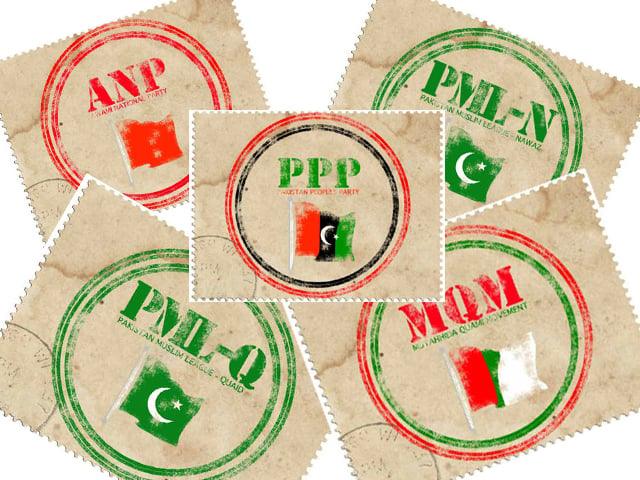ISLAMABAD:
The ruling coalition announced on Tuesday that the committee currently holding talks with the PTI would not disband and would continue to work beyond the deadline set by the opposition party, saying achieving a positive outcome of the exercise was crucial than meeting the deadline.
Not only that, the government side also indicated that it might present its set of demands before the PTI committee in the upcoming meetings, implying that the deliberation on the charter of demands and discussions in party and inter-party circles would consume more time than the period set by the PTI.
The statement comes at a time when the negotiation committee of the opposition PTI has been constantly conveying that the ongoing dialogue process with the government cannot move forward unless a judicial commission is formed before January 31 to investigate the incidents of the May 9 and November 26.
The PTI, while ending the judicial probe, also demands the release of its founder Imran Khan and party workers. Talks between the government and the PTI were temporarily stalled, but now both sides are set to meet on January 16 for the third round, when the PTI will submit its written letter of demands.
Amid repeated statements by PTI leaders that the government must take practical steps to demonstrate its seriousness before January 31, the spokesperson of the government’s negotiation committee with the PTI, Senator Irfan Siddiqui, announced that “the committee will not be dissolved on January 31.”
The PML-N leader and committee spokesperson stressed the importance of achieving meaningful results rather than rigidly adhering to deadlines, stating that “a positive outcome is our priority, not simply meeting a deadline.”
In interviews with various media outlets, Senator Siddiqui explained that the seven political parties represented in the government’s negotiating committee need time to consult their respective leaders before formulating a unified response to the PTI’s demands.
He stressed that a consensus between the parties was essential before the committee could present a collective position, adding that the process may take some time. Commenting on the PTI demands, Senator Siddiqui described them as complex and of great gravity.
He clarified that although the government commission has not made any demands so far, “it may propose some suggestions if the dialogue process advances without problems.” These proposals, he noted, will be “specific to Pakistan and its people” rather than focusing on individuals or political parties.
Responding to a question, Siddiqui recalled that during the December 23 meeting, the PTI had promised to submit its demands in writing. However, even after three weeks, no written demand has been received. He expressed hope that the PTI will present its demands in the next meeting, after which the government committee will respond accordingly.
Siddiqui also addressed concerns over civil disobedience and social media campaigns, clarifying that the government committee has not asked the PTI to suspend such activities or to stop negative rhetoric on social media. However, he warned that tweets and statements that are detrimental to the dialogue process should be avoided.
“PTI’s demands are not simply a letter that can be responded to immediately. The nature of these demands requires time for serious deliberations.”
Meanwhile, PTI president Barrister Gohar, while speaking to reporters outside Adiala Jail, said that PTI will present its charter of demands before the government committee in the next meeting scheduled for January 16.
The delay in filing the demands was attributed to the government’s failure to organize a meeting between the PTI founder and the committee in jail, as the government committee had earlier promised. Seeing that the PTI maintained its stance of filing demands only after consulting with Khan, the government arranged the meeting between Khan and the PTI committee on Sunday.
During the meeting, PTI leaders decided that they would not take the talks beyond January 31 as there was plenty of time beforehand for the government to at least constitute a judicial commission headed by the senior judges of the Supreme Court.
The PTI believes that the formation of the commission and the release of the prisoners would establish the authority of the government committee and pave the way for future talks. Some leaders on the government side, however, have been conveying through their public statements that the release of prisoners can only take place in the courts after they have been tried.
The talks that began on December 23, 2024 continued into the third week and the previous two sessions could not go beyond optics. With the PTI submitting its charter of demands in the next meeting, the talks are expected to enter the stage where both sides begin meaningful discussions on the demands.




